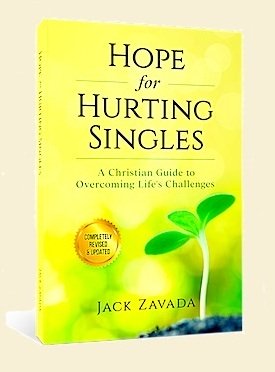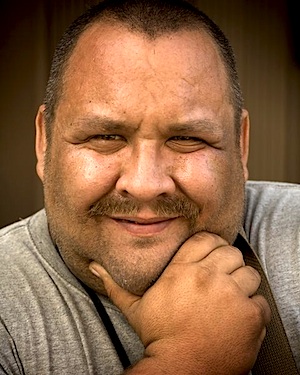Is life worth living for singles?

Is life worth living for singles? Can we find meaning without a spouse and family to motivate us?
From ancient times, philosophers and common people have been asking what gives life meaning. More recently, Canadian philosopher Paul Thagard, Ph.D., offered these three elements in a blog post on Psychology Today: love, work, and play.
Love, Thagard says, includes family and friends, as well as romantic love. Work includes a job or volunteering in the community. Play involves everything from reading to other forms of entertainment.
Thagard rates religion as "bogus" in providing meaning to life. At first glance, love, work and play do seem good things on which to base your life, but there's a serious problem with all of them: They can be lost.
These things can be lost
This three-legged stool of love, work and play seems to provide a solid basis for a meaningful life — a life worth living. Yet experience shows any or all of those elements can be lost.
Take love. Is life not worth living if you don't have a spouse or romantic partner? What about friends and family? What happens when they move away or die? Millions of widows and widowers, as well as divorced persons, can tell you that life goes on after the loss of a spouse. It has to. Life changes and may not be as happy, but people who recover realize they can't mourn forever.
We've all gone through romantic breakups, but eventually we understand we must pull ourselves together as well. I know some people in their 90s, and as they outlive family members and friends, they grieve but still find meaning in life.
Work can end, sometimes abruptly. Being laid off or fired is an emotional setback. When you pour yourself into your career and make it the meaning of your life, you take a tremendous risk. Retirement eventually comes, sometimes for health reasons. Powerful, highly paid executives often do think their life is not worth living when their career is over. Community work and volunteering are meaningful, but aging eventually puts an end to those activities too.
Play and recreation are critical in life. I love my hobbies and pastimes. They make life richer. Keep in mind, however, that accidents, illness and aging can prevent us from being as physically active as we'd like to be. Does life lose its meaning then?
Life worth living: shallow or deep?
If you look at the world around you, it would be easy to believe you can buy a life worth living. From extravagant mansions to luxury cars, advertisements promise —subtly or crudely — that you can find meaning in owning expensive stuff.
For millions of people, life is worth living only if they can outdo the other guy. That kind of smarmy competition is a large part of what keeps capitalism thriving.

In the end, however, it's shallow. I knew a married couple whose whole existence was based on impressing others with their wealth. Ironically, their immodest lifestyle had just the opposite effect. In their Midwestern small town, they were resented for flaunting their wealth. Did they feel life was worth living? I'm sure they did; something in their past made them crave adulation and they seemed to feel vindicated when they got it.
That's why it's important to have a high set of morals and ethics. Doing the right thing makes life worth living.
So what's the right thing?
Paul Thagard, the philosopher I mentioned earlier, was on the right
track with love, work and play, but he blew it when he characterized
religion as "bogus."
I am a Christian. I don't apologize for
that. I believe Jesus Christ is the only way to heaven because that's
what Jesus himself said (John 14:6). But besides providing a way for
people to live forever, Jesus also shows us how to do the right thing
while we're living here on earth. When we follow his commands, we'll
have a life worth living.
There is no set of morals and ethics
higher than the one required by God. It transcends time periods, ignores
fads, and gives a crystal clear guide for behavior. There's only one
problem with God's rules:
They're really hard to obey.
They're so hard, in fact, that no man or woman can follow them without help. God supplies that help in the person of the Holy Spirit, a counselor who lives inside every baptized believer.
The Holy Spirit directs us in a life worth living. He shows us how to love God with our whole heart and how to love our neighbor as our self. That's the true purpose of life. God sticks with us when we lose love, work, or the ability to play. He is the only constant in life. He never changes, he never goes away.
Best or second best?
We singles have choices, sometimes too many. It's ridiculously easy for a single person to go their own way. Most do.
But our own way is not the best way. It's based on immaturity, lack of facts, and emotional desires. Singleness fosters a "me, myself, and I" attitude.

When it comes to a life worth living, most singles indulge in the adult equivalent of candy and toys. Like a child with no supervision, we do what feels best at the moment, with no thought of the consequences.
If you are already a follower of Jesus, congratulations. If you are not, I ask you to consider this way of life. Down through the centuries it has proven to bring an authentic sense of joy. It holds up through good times and bad. It provides answers to life's toughest questions.
What's more, Jesus Christ promises eternal life and he can deliver on that promise because he rose from the dead himself and is alive today. The Christian life is not an easy life, but it is a worthwhile life, a life worth living.
$10.99 in paperback
or
$3.99 Kindle edition
from amazon.com







